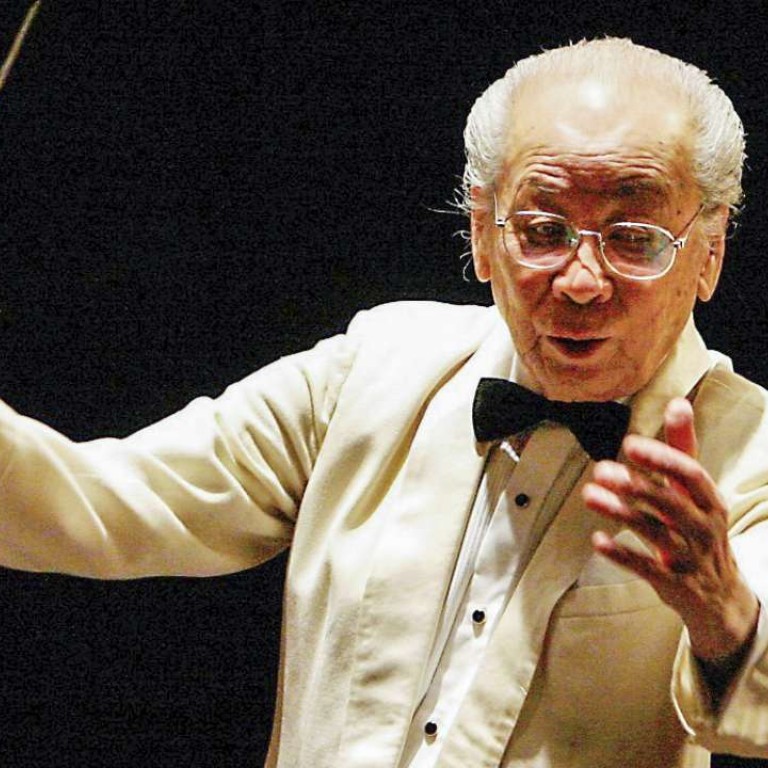
Musician who brought classics to communist China dies aged 99
Huang Feili left a promising career in the West to return to his homeland and help establish a new musical foundation
The eminent Chinese musician and conductor Huang Feili died at his home in Beijing on Monday at the age of 99.
Huang will be remembered for giving up a promising career in the West to return to communist China to help build musical institutions from scratch, a move he looked back on with mixed feelings.
Huang was born into a Christian family in Guangzhou and attended Pui Ching primary school before moving to Shanghai when he was 10.
He studied violin under R.B. Gerzovsky, a Russian and associate concertmaster in the municipal orchestra.
Huang completed his studies at the University of Shanghai in 1941, but was trapped in the city during the Japanese occupation.
To make ends meet, he played the violin in studio recordings and in an orchestra for the film director Fei Mu.
Huang was so skilled he was later invited to record for the Shaw Brothers for their film studios in Hong Kong in 1946.
The money he made gave him the financial security he needed to study at Yale University under Paul Hindemith, one of the top composers of the 20th century.
Huang declined his teacher’s offer to work in Switzerland and returned to China in 1951, joining the faculty of the Central Conservatory of Music.
He founded the conducting department after directing China’s premiere of Tchaikovsky’s opera Eugene Onegin. He later conducted a series of ballets, including Giselle and new works such as The Mermaids.
Huang rehearsed The Red Detachment of Women in 1964, a new ballet which later became one of the “model operas” during the Cultural Revolution. He did not premiere the work at the Great Hall of the People as he was labelled a “suspected spy” under the social upheavals and violence unleashed during the political movement. The designation led to him getting beaten by students.
Huang later put the ordeal behind him while working at the Central Conservatory of Music. He presented his students who were studying conducting to Japanese conductor Seiji Ozawa when he visited China in 1976. The youngsters included Chen Zuohuang and Shao En who went on to have highly successful careers. Huang retired in 1987 but remained active training school orchestras in Beijing and beyond.
Huang is survived by three sons and several grandchildren.

